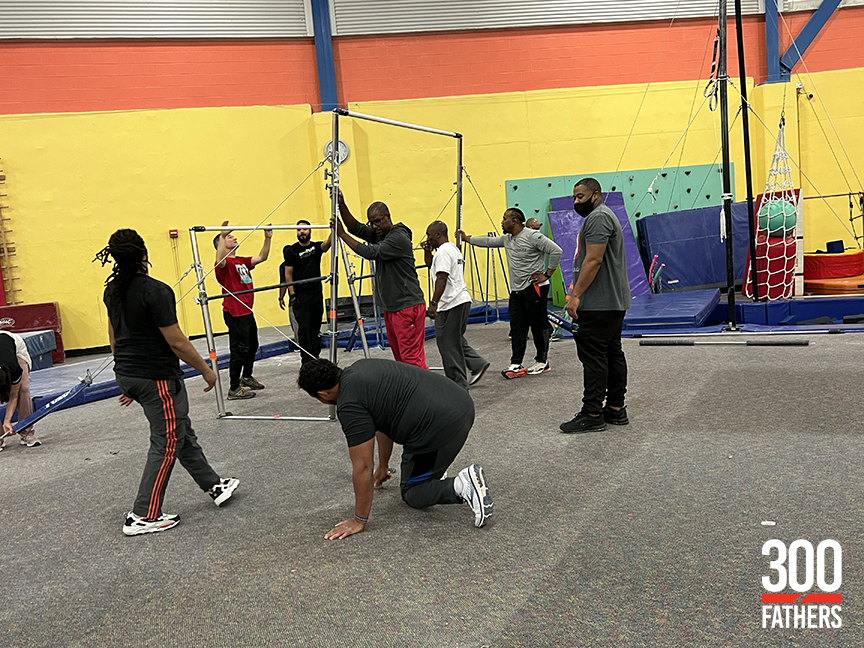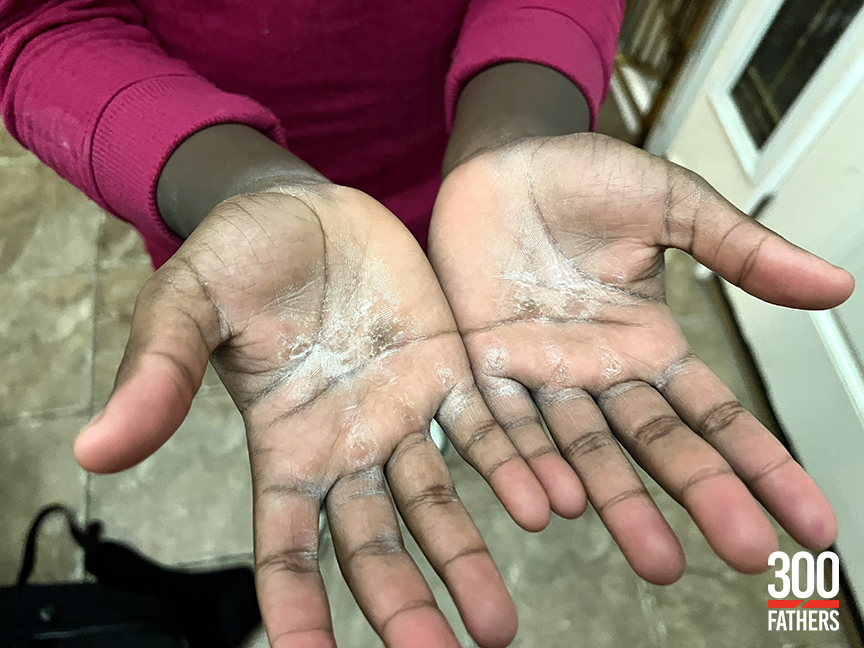I am writing this article to hopefully provide some insight into youth gymnastics for any father (and/or mother) that has a child interested in the sport. Maybe your child hasn’t expressed an interest YET, but you are looking to get them into a sport or activity. I hope this article helps you when it comes to making your decision.
So how did we get here?

My wife and I have a son and a daughter. At the writing of this article, my son is 13 and my daughter is 11. What peaked our interest in youth gymnastics was 100% the physical play of my daughter starting back when she was a toddler. She has always been really strong and she loved to climb things, flip, stretch and do other things that constantly had us holding our breath and panicking LOL. We enrolled her at a small gym here in Clinton Maryland when she was about 2 years old. Whenever it came time to go out with the kids, she would cry and cry and just wanted to get back to mommy, so we canned that idea thinking “maybe this isn’t for her”. As time went on and some years passed, she kept climbing and flipping and so my wife decided to enroll her in some gymnastic classes at another gym through PG Parks and Recreation. This was the beginning of the journey. Logan went through each of the class levels from bronze, to silver to gold and then we started wondering if she could potentially get on a competition team. Kelley worked to get her evaluated and for a while, it didn’t seem like they were going to select her for the teams. Honestly looking back, she was a couple of years older than where they typically seem to like to start the kids (more on that later). Logan was finally evaluated and she made the level 3 team in the Junior Olympics program at Sports & Learning Complex in Landover Maryland.

The information I am going to share with you here is from the insight of a father that has had a child in a youth gymnastics program for 3 years (at the time of this article). There are 5 things that I believe every new parent should know. Those 5 things are TIME COMMITMENT, PHYSICAL COMMITMENT, FINANCIAL COMMITMENT, SIBLING IMPACT & EXPECTATION MANAGEMENT. Let’s break these down…
Truth #1: The Time Commitment of Youth Gymnastics

One of my first realizations that gymnastics was unlike any other sport was the time commitment that it takes from both the gymnast and the parents. Most youth sports will practice 2 maybe 3 times a week for 1.5 to 2 hours max. When it comes to competition gymnastics, that practice time commitment is typically 4 days per week, about 3 to 4 hours each practice. Yes, practice even on school nights. You MUST be organized with your schedule! If you talk to most parents they will tell you how they have to carefully coordinate their time from picking the children up from school and dropping them off at practice. There is also the parental time commitment in attending meetings as well as volunteer time required for all gymnastics events hosted at your home gym. This includes volunteering during the actual meets at the gym as well as setup and breakdown of all apparatus.
Truth #2: Physical Commitment of Youth Gymnastics

As a father watching his little girl train for this sport, I can honestly tell you there were a couple of times I wanted to tell her she could quit. When your child gets on the competitive teams, their bodies will quickly transform from the amount of strength training that they do on a daily basis. The six pack abs come in, their shoulders start to get broader, their arms develop, their legs develop and they tear their hands up on the uneven bars. Yeah dad, get used to your daughter having rougher hands than you. Now, I do believe that when the girls go through this together, it makes their bond even tighter as a group. You would think that after being around each other for 16 hours a week, they would want a break from each other. It seems like it’s just the opposite, they seem to want to be around each other more because if the truth be told, there really aren’t any other kids that can understand their schedule and commitment and it’s just more of a natural friendship fit.
Truth #3: Financial Commitment of Youth Gymnastics
When it comes to youth gymnastics, it’s time to turn your wallet upside down. No seriously, like most youth sports that are on a level of AAU, travel teams etc, gymnastics requires a pretty significant financial commitment. Fee’s for the program, fees for the booster club, leotards, travel expenses for meets, physical therapy when needed and other things. One other thing that we honestly need to put more focus on is the diet of our gymnast. This of course is going to add to the financial commitment but it is so necessary.
Truth #4: Sibling Impact

If you have more than 1 child, and you have a child in competitive youth gymnastics, you have to be mindful of how much time you are taking away from the siblings that are at home. Gymnastics takes up A LOT of your free time but you don’t want to slight the siblings that are not involved. There is a good chance that you will need to sacrifice a good portion of your remaining free time to make sure that your other child (children) can participate in other sports and activities. One thing that we always try to do is extend competition / meet weekends. When Logan has a competition out of town, even if we could go and come right back, we will often try to add time before the meet, after the meet or both so we can spend time together as a family. When Clark has his games or activities that we are involved with as a family, we make sure Logan goes to support him like he supports her. It is a delicate balancing act and you have to be intentional about what you do.
Truth #5: Expectation Management
Expectation management was one of the biggest adjustments for me. Gymnastics as a whole, especially youth gymnastics is just as much mental as it is physical for the athlete. Sometimes they get their new skills/upgrades fast, sometimes they get them on a regular pace and sometimes it may take a little longer than some of the other gymnast. This was a tough lesson for me to learn at first. Communication with you coaches and the program is VITAL. If you are a parent that is taking a serious approach to gymnastics and you want to see how far you child can go to even include college, you have to approach their training with intentionality. The tricky part is communicating with your gymnast to a point of stressing the importance of them taking it serious without putting to much pressure on them to where it could mentally stress them out and impact their performance. You have to know your child and the best way to communicate with them. Ask questions to your gymnast and coaches and monitor your athletes progress. When we found out the things that Logan needed to work on, it helped us to manage our expectations as well as her expectations and created a smoother journey for the process.
When Should You Start Your Child in Gymnastics?
Earlier in the article, I mentioned the timing of when gyms typically like to get gymnasts started in the sport. Let me say this upfront, I am not a gymnastics coach so this is just my opinion based on what I have seen over the years. I believe that gymnastic programs what children to start their involvement in youth gymnastics around the ages of 5 or 6. I think there are 2 big categories or reasons to look at with this… muscle & tendons and mentality. The younger that your child is, the more pliable and elastic their muscles and tendons are in their body. There is less stiffness and less resistance to training. The other side of this is the mentality. Let’s face it, some of the moves that these gymnasts execute are scary! But we all know, young children for the most part are fearless. This helps them greatly when it comes to performing some of the skills required to be successful. The older we get, the more we tend to put up barriers to things that we feel may be “dangerous” and in the sport, this can create mental blocks.
So is it Worth It?
The short answer is YES! In spite of everything mentioned above, the discipline that these young gymnast learn is almost world class! I truly believe the mental toughness that they learn will help them all throughout their life. If your child really expresses an interest, they want to take it serious and you have the means to do it, I think it is definitely worth it
